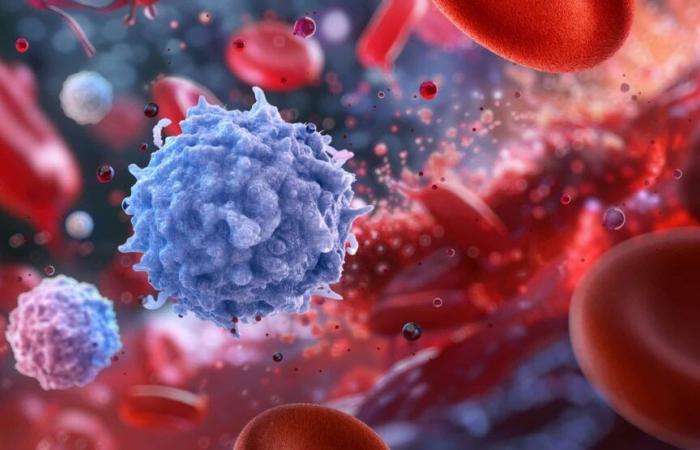In France as elsewhere, cancer remains one of the major public health plagues. Second cause of mortality in France, he is responsible for nearly 150,000 deaths each year. However, in many cases, an earlier diagnosis could have changed everything. It is precisely on this ground that British researchers are preparing to upset the game with a new blood test.
A blood test that tracks down 12 cancers … in a few drops
Developed by the University of Southampton in collaboration with the Biotechnology XGenera Startup, the Mionco-Dx baptized test requires only 10 drops of blood to detect up to 12 different cancers, among the deadliest: lung, breast, ovary, intestine, pancreas, brain …
How is it possible? Thanks to artificial intelligence, which analyzes the microarn present in the blood – of tiny genetic fragments released in the blood circulation by cancer cells, sometimes long before the first symptoms appear.
According to the first results, the test would have displayed an impressive 99 % precision rate in trials of 20,000 patients. A second phase, this time in real clinical conditions, is currently underway on 8,000 patients within the National Health Service British (the United Kingdom’s public health system).
A revolution in detection, a chance of tenfold survival
Why does this test arouse so much hope? Because early detection is the number one factor to improve the chances of survival. Take the example of colorectal cancer, one of the most frequent in France: detected at its very first stage, nine out of ten patients are subspected. But this figure falls to one in ten once cancer at an advanced stage.
In other words, every day won in the diagnosis is potentially a saved life. With Mionco-DX, we are considering rapid, simple, painless screening, and above all repeatable on a large scale, without having to systematically use heavy exams such as colonoscopies or biopsies.
An AI that sees what the human eye cannot detect
The secret of this feat lies in the automatic learning algorithms developed to interpret genetic data. The artificial intelligence used is not content to say “yes or no” to cancer: it can also indicate in which part of the body the tumor is located, an enormous time saving to guide the care.
In addition, this technology would reduce pressure on hospitals, avoiding expensive and sometimes unnecessary exams, while offering large -scale preventive screening, including city medicine.
Credit: ISTOCK
Credits: Totojang/Istock
An innovation carried by a militant heritage
The arrival of Mionco-DX coincides with the opening in the United Kingdom of the Bowelbabe laboratory, in tribute to Dame Deborah James, a journalist and activist who died of intestine cancer at the age of 40. Thanks to its awareness campaign, it has made it possible to raise more than 7.5 million pounds sterling for research.
Its fight today inspires the implementation of this laboratory dedicated to early detection of colorectal cancer, but also to the acceleration of technologies like Mionco-DX.
And in France?
Although this test is for the moment developed and tested across the Channel, it already arouses the interest of the international scientific community. If the results of the current clinical trial confirm the initial promises, we can hope for rapid European dissemination, and why not integration into screening programs in France in the coming years.






